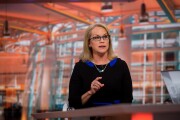As recently as 40 years ago, many credit union chief executives were hired at least in part due to one important qualification — they were employees of the institution’s sponsor.
In those days, CEO compensation was often set by the policies of the sponsoring company and its salary grids.
“Boards were comprised of company employees, and they were comfortable with these arrangements as were the CEOs, who often looked at the credit union as an extension of the company or at times a department within the company,” said
But times have changed.
Credit unions have become mostly community chartered or multi-select employee group institutions and are now far more complicated. Even credit unions that have remained single-SEG institutions face more challenges in terms of cybersecurity, regulation and other areas. All of this requires greater professional management not only at the CEO level but throughout the C-suite.
These changes in addition to wage inflation and a wave of executive retirements are driving up credit union executive compensation.

Credit union CEO base salaries increased 8% this year from 2021, and total compensation increased about 9%, according to Newcleus Compensation Advisors. In fact, Newcleus said the top three positions in credit unions — CEO, chief operating officer and chief financial officer — each saw a base salary increase of about 8%, while total compensation, including bonuses, increased by about 10%.
Winne, who spent 40 years in the credit union industry, with the last 20 at the helm of the $413 million-asset BFCU,
“In this competition, we are at a disadvantage in that credit unions cannot offer equity-based compensation to their management teams and thus the difference needs to be made up in other forms of compensation,” Winne said.
To counter this, credit unions are increasingly offering goal-oriented bonus structures and in many cases robust deferred compensation plans, Winne said.
“Evidence of this exists in the number of firms that are entering the credit union deferred compensation space and working with credit unions to attract and retain talent in the CEO office and throughout the senior team,” Winne said.
For credit unions, bonuses are usually in the form of an annual payout, Winne said. If done well, the criteria are established according to the business plan, and success is measured at the end of the year. He said payouts vary, but in some cases up to 20% of base may be attained with good performance.
Jennifer Allen, senior compensation analyst for Newcleus Compensation Advisors, said earnings and loan and membership growth are the top metrics used to determine bonuses and incentives for the top positions. Additionally, she said that business lending and chief information positions are in demand from both credit unions and banks. Credit union employees in those two positions had salary increases close to 9% during the past year, Allen said.
Besides the industry becoming more complex, high wage inflation is also partly responsible for increasing compensation costs, said B.J. Berrettini, a recruiting manager for the search firm AJ Consultants. The Employment Cost Index, one measure of
Berrettini said the financial services industry has seen rapid wage growth in the past, but everything is cyclical and the increase in compensation is likely to slow. For example, from 2000 to 2005, the banking industry recorded compensation bumps of up to 20% at times, but that leveled out around the time of the Great Recession, he said.
“Today, an unprecedented number of market pressures have contributed to the record-breaking wage inflation affecting every banking position from tellers to CEOs. The reasons behind this trend are vastly dynamic and uncomfortably reactive. Outside of the inevitable slowdown, it is hard to predict the future,” Berrettini said.
Finally, Winne said, wage trends have been further influenced by the recent wave of retirements from the C-suite. That has created a situation where many credit unions are looking for senior-level talent at once.
“This is a simple
To help with recruitment, boards are hiring professional search consultants who are schooling them on compensation trends and the need to offer a competitive package.
“In many cases, boards that have not kept up with compensation trends are now looking at sticker shock when they are forced to deal with the price of today's talent,” Winne said.






